 Dominic Carew is a lawyer and writer from Sydney. His short stories have won or been shortlisted for several awards, including the Commonwealth Short Story Prize. His first collection of short fiction, No Neat Endings, will be released through MidnightSun in February 2020.
Dominic Carew is a lawyer and writer from Sydney. His short stories have won or been shortlisted for several awards, including the Commonwealth Short Story Prize. His first collection of short fiction, No Neat Endings, will be released through MidnightSun in February 2020.
The Barbecue
One spring when I was thirteen, my best mate’s family moved in around the corner. We lived in Manly, with the beach close at hand. My parents had recently landscaped the backyard, put in a new deck and paved part of the lawn. The centre-piece of all this, without question, was Dad’s brand new eight-grill Weber. With the hedges trimmed so neat and the bougainvillea flowering, the Johnsons seemed happy coming over.
“You should open a shop,” Ed’s mum said one time. “The place looks that nice.”
“Mum,” Ed said, rolling his eyes. “What kind of shop?”
“An outdoor one. A BBQ shop. Go and play with Mike, Ed.”
“Have a look at this Weber,” was all Dad said, in Mr Johnson’s direction. “You can wood-fire pizzas with it.” But Mr Johnson said nothing. He just stared at Dad from across the lawn, his eyes narrow and his head held back. I didn’t realise until a few weeks later, when we hosted another barbie, that this gaze had confrontation in it. Militant, was the word I would have used, had I known what it meant when I was thirteen.
Ed and I had been mates since year one. We played soccer together and went to St Pauls High up the road. We looked pretty similar, blonde and gangly and sunburnt half the time, though the biggest thing we had in common was our dads. They weren’t the same people but they had the same hang-ups. Time and distance were two of them. Money was another.
Ed’s Dad was a financial accountant. He worked in the city at an investment manager with its logo on a Sydney-Hobart yacht each year. He was forty-eight. Mine was a surgeon. “Bones and joints,” he’d say when asked what kind. “Things that go crack and pop.” Then he’d laugh at himself until Mum, arms folded, would shake her head at him to stop. He had, for as long I could remember, always laughed at his own jokes.
“Better than never laughing at all,” Ed said to me one time when we discussed it.
“Rick? He’s got a sense of humour, doesn’t he?”
“I’ve never seen him laugh.”
“Bullshit.”
“I haven’t. Once he tried to laugh, when he got promoted, but he couldn’t.”
I looked at Ed. “I never noticed.”
“Hey,” he said, “let’s stop talking about our dads.”
“Deal.”
This year, like last, we didn’t make the semis. Soccer was over until March, which meant we’d have to find new ways to spend our Saturday arvos. As thirteen year olds, hanging out in my backyard while our dads stood over the barbie, competing about whose steaks were a better cut and who got the best deal on a kilo of sausages, was not on our agenda.
“You boys’d wanna stick around,” Dad said as we made our way to the back gate. “These are gonna be delish.”
“We’ll be back later,” I said, though he wouldn’t have heard me. He’d bent forward already to scrape last weekend’s char from the grill. We could hear the sound of that scraper, like rapid-fire, half a block away.
*
We went to Copenhagen one day, the ice cream joint on the corso. It was cheaper than the place at the wharf. Not as good. Fewer options. But on our pocket money, we really should’ve been getting paddle pops from Coles. With hands around our single scoops to protect against gulls, we walked to the beach and sat on the steps there. It was quiet. The surf was flat and for a moment, despite the crowds of stumbling toddlers, all seemed still.
“This ice cream’s shit,” Ed said.
I agreed with my friend. I would’ve said so too, but was chewing a piece of honeycomb that must’ve been really old. It tasted bitter.
“Know what I saw the other day,” Ed said, staring at his cone sadly, as if it were a person, a father say, who’d let him down. “Dad reuse oil from brekky on dinner that night.”
“Yeah,” I said. “Dad does that too.”
“It’s not the tightness,” Ed said, shaking his head at his ice cream, which was melting down his hand, “it’s that he makes so much money and doesn’t spend it.”
This, I happened to know, was true. The Johnson’s had lived in Dee Why since Ed was born. A cheap suburb by Northern Beaches’ standards, and one Mr Johnson had always refused to leave. Despite his huge income, he’d had no intention of selling what he referred to as “a perfectly adequate home.” Then Ed’s grandad died, leaving them a house in Manly. They moved in as soon as probate cleared. I knew all this cos my parents discussed it one night after the Johnson’s left our place. Something in their tone of voice was mocking. Like they were a little bit better than that.
“Dad spends it,” I said, swallowing the honeycomb at last, “But only on the house. On that stupid barbie.”
“It’s a good barbie but,” Ed said, gazing into the distance. “Fwor, see that bloke on the body board? He just kooked it.”
*
Ed and I had started surfing a year earlier and were still both hopeless. It didn’t bother me so much; I’d have preferred to have been good but wasn’t out to change my fate. By thirteen, I’d developed what I see now as a philosophical system, able to resign myself in the face of my inadequacies. Over the years, it’s been a useful tool. It still is today, probably more than ever, as a father, with two sons of my own.
Ed, though, had a different view. He took his failed attempts to stand up on a board as a personal affront. As if the other surfers, the world, God himself, had all conspired to sleight him.
One arvo, we ate shit for an hour on a shore-break, gave up trying and headed home up the beach. “Fuck this,” Ed kept saying, his leg rope rattling against the hard waxed surface of his board.
“Oi Johnson,” someone yelled from behind us; a girl’s voice, high and teasing. “You looked good out there!”
We turned around and saw it was Emily Miles. She stood on the sand in a pink rashie, her blonde hair wet and knotted, her tanned, freckly face glowing like a dimmer version of the sun. She was in our class at school. Year Seven like us, and already sponsored by Quicksilver.
“I just can’t seem to stick it,” Ed said as we walked up to her.
She put her hand on his shoulder. “Shoreys are the worst to learn on mate. Wait till it’s high tide.”
“Yeah,” Ed said, looking at his feet. He’d gone red and was trying to hide it, I knew. He liked Emily. He hadn’t told me this yet, but I could tell he was keen to pash her.
There was a silence. You could hear those shore-breaks thudding into the sand.
“Well,” she said, “here comes Rach, see you’se.”
We watched her run with her board under her arm to Rachel Sullivan, a Year Nine girl on the junior pro circuit. They were both infinitely better than us. As they jogged up the beach towards Queensie, giggling and nearly stumbling over themselves, I couldn’t help but think they were laughing at our expense.
*
A few weeks later, I was in Coles with Dad, helping him prepare for the barbie. He had a shopping list that ran across three pages, all in landscape, tabulated, with a space in the far right column to record the prices.
“I know it seems pedantic,” he said to me, “but once you’re in the habit, it’s no trouble at all.”
I didn’t really listen to him explain why he did it. Something to do with keeping them honest; who ‘they’ were, I didn’t know. The fifteen year old check-out chicks?
“Ooh, ooh, ice cream special. Neapolitan Mike, three o’clock.”
“Hang on,” I said, “don’t we have some at home?”
“Yes mate. But this is the best price I’ve seen for it. Get three tubs. Then meet me in the meat aisle.”
I got the tubs and carried them, stacked and cold against my chest, across the store. This would make six tubs in total. I wasn’t even sure we had space in the freezer. I knew we had the barbie this Sat, but even so, based on my rough estimation, there’d be enough Neapolitan for the guests to have five bowls each. In the end, I resolved not to question it, the memory of a two-for-one baked bean deal, and the drama that came with it when Dad tried to buy fifty tins, too fresh in my mind for comfort.
When I got to the meat aisle with the tubs, Dad was on his knees with his head and most of his torso inside a fridge.
“Mike,” he said – his voice sounded tinny, and echoed like he was in a cave – “take these as I hand them to you,” and he passed me tray after tray of grey, icy, priced-slashed steaks.
As I unloaded the trolley at the check-out, Dad stood behind me, scribbling into his table. The sound of his pen, the urgent scrawl of it, made me clench my fists.
“Beautiful,” he said, after we’d packed the boot. “That took six minutes less than planned. Mike? Hold onto your seat, mate. Bunnings is still open,” and he laughed full pelt for the next ten seconds.
*
On Saturday, Ed and I helped my parents set up for the barbie. The Johnson’s were invited, as well as the Crawley’s and the Mitchell’s from Mum’s church group and a few other adults I’d not met before that Ed’s dad knew from work. We carried two long tables down from the deck and placed them on the grass, end-to-end. Mum had collected an array of different flowers from around the neighbourhood. Not exactly legal, but this didn’t seem to matter. She had us arrange them in terracotta vases along the table. “Put the wisteria and the birds of paradise together at the ends. No Mike, the wisteria? And the birds of paradise?”
Once we’d finished that, Ed and I pleaded our case to be let off for an hour. We wanted to surf. Ed’s sister, Melanie, was around, helping with the salads, so we got our wish. As we left, I noticed Dad and Mr Johnson standing near the barbie, staring intently at their watches and twisting the dials, like they were synchronising time.
There wasn’t any swell. We sat offshore straddling our boards and talked about girls. Ed said he didn’t want a girlfriend. And I said that was bullshit and he should just ask Emily out. He said if I was so sure why didn’t I ask Beth Simpson out, cos he knew I liked her and hung around her locker every arvo to watch her pack her books. “But her locker’s next to mine,” I said, “where else would I be at final bell?”
“Don’t deny what you know is the truth,” he said, frowning. He held the frown for a moment, then we both cracked up. It was what his dad said whenever they argued. Ed liked to mimic it, though never in front of Mr Johnson.
“Don’t deny, young man,” he went on, swinging his arms and splashing up water, “what you know in your guts is true.”
*
After showering and getting into a clean polo shirt and a pair of pressed shorts, I sat at the table in the yard next to Ed. It was sunset. A peach-coloured sky spread overhead, streaked with golden clouds. The Crawleys, the Mitchells, Mum, Melanie, Mrs Johnson and three other adults were seated, pulling bread apart and buttering it thickly, or pouring hefty splashes of wine or picking grapes from the heaps along the table.
Dad and Mr Johnson stood at the barbie which, by now, was covered in cooked meat. They each held tongs. And a European beer – Dad had bought three cases on special a month earlier. Every now and then he’d take a sip, then say something over his shoulder to the table, laughing.
“The salads look divine,” Mrs Crawley said to Mum, piling her plate with a healthy serve.
“I just think those kinds of short-term fixes are nonsense,” Ed’s mum was saying to a man opposite her, “you can’t expect to tax rich people and promote a healthy economy.”
“Agree entirely,” the man said. He held the stem of his wine glass between his thumb and finger like he was pinching it.
“Who wants rare?” Dad yelled.
“Bloody for me,” Mr Mitchell said.
“And me,” said his wife, throwing back a full flute of sparkling wine. “Would you look at the sky?”
My steak was perfectly cooked, the marinade Dad used so thoroughly soaked-in, you couldn’t even tell it was old. I chomped away. As did Ed and Melanie and everyone else. The sun had slipped behind Dobroyd, leaving Manly in shadow. Up above, fruit bats commenced patrol, their angled wings spread wide, like little stealth bombers.
“Good steak,” Ed said, his mouth full.
“Potato salad’s awesome,” his sister chipped in.
I nodded, my own mouth full, and turned my head in Dad’s direction; he was sitting with Rick at the end of the table. They were entrenched in their own conversation, to the exclusion of the rest of us. I couldn’t make out the words, but the way they moved their hands, their heads wobbling in my periphery, suggested a topic of some severity. Then, as if the last ten minutes had been building to it, Mr Johnson threw down his serviette and yelled in a frantic, high-pitched voice, “Incorrect!”
It was like a car had just smashed into the house. Knives and forks clinked onto plates; all went silent.
“That is incorrect,” Rick said, his voice even higher now, and still very loud, “and you bloody well know it.”
“Rickard,” Mrs Johnson hissed from halfway down the table. But he didn’t seem to hear her.
“It’s not incorrect,” Dad said, squaring back into his seat and pulling a piece of gristle from his mouth. “It’s bang on accurate.”
Now at this moment, we witnessed an event rarely beheld so that, when it happened, no one quite comprehended it. Mr Johnson gripped the edge of the table with both hands and he, well, laughed.
“Rickard?” his wife said.
“Har har har,” her husband went, his mouth contorting into some kind of smile.
“It’s four hundred metres or under, and I’m not kidding you,” Dad said.
“You’ve measured it, have you?” said Rick, whatever imitation of mirth he’d offered, no longer on show.
“Not per se. But I make the walk enough to know, within five metres, how far we live form the sand.”
“If it’s four hundred, I’m the next prime minister.”
“Well,” Dad said, “I hope you’ll have us over to Kirribilli House.”
“What on earth are you two talking about?” said Mum; she had her wine glass up, away from her face, like she was showing it off.
Neither man spoke for a moment. Rick stared at Dad through narrow eyes.
“Why won’t you take my word for it?” Dad said. “We’ve lived here five years. I think I’d know.”
But Rick just kept staring.
At the time, and for a long while after, I thought Dad’s a reasonable question. We had lived there five years. Dad walked to the beach at least once a week. He could guess pretty well about distance. What’s more, Rick was sitting on his lawn, at his table, eating his half-priced steaks. The least he could do was pretend to agree. Over the years though, I have, if not come around, at least come to appreciate Rick’s position. I’m in finance myself now, a controller in a hedge fund, and I’ve learned over the course of my career about men like Rick. Put simply, they can’t help it. Accuracy’s a type of vice. They thrive on and, at times suffer for, it. Of course, in this case, pride was at play too. The Johnsons lived a K from the beach, maybe more. If we lived within four hundred metres, what did that make them, the house that they’d inherited?
“Listen,” Dad said, getting up from his chair, “if you’re so bent on this, let’s go and measure it.”
“Brian, for goodness sake!”
“You’re on,” said Rick, standing up as well, but far too quickly, with rigid shifts in his limbs, so his chair went toppling over.
Dad disappeared inside the house while Rick remained standing at the table, looking around at everyone with pursed lips, his eyes focused, as if we were a corporate board he had to convince of something.
“This won’t take a moment,” he said. While his tone was polite, there was not, as far as I could tell, apology in it.
“Got it!” Dad yelled from up on the deck, waving a cricket ball-sized GPS in his hand. “Let’s go.”
*
At school on Monday, Ed and I avoided each other. When we talked about it later, we both agreed this had nothing to do with our friendship, which, as it turned out, would remain intact for the rest of high school. It was more out of a sense of duty. A mutual interest in keeping our families away from each other, at least until the heat came off. Tread lightly for a day or two while the ceasefire took hold. That kind of thing. When on Tuesday we met at recess, the first thing Ed said from across the quad, before I’d even reached him, was, “I don’t wanna talk about Dad.”
No beef from me. I didn’t want to go there either. We walked over to the table by the bubblers and sat down to eat.
“He’s taken it pretty bad,” Ed said, ignoring his veto of moments ago.
I nodded solemnly. “Well he shouldn’t. One more metre and he’d have been right.”
“He was convinced, convinced, the GPS was wrong.”
“He made that pretty clear,” I said, nibbling on a shape.
There was a silence. Then he said, “How’s Brian’s nose?”
“It’ll be alright,” I said, though by alright I meant the fracture would eventually resolve into a permanent kink.
As we ruminated over this, a little embarrassed, tacitly committed to delicate words, a voice sung out from behind us.
“Oi Johnson,” it said.
We turned around.
“Heard your old boy bashed Mike’s dad on Sat.”
It was Emily again. She was smiling her white Aussie smile. Beth Simpson, to my horror, stood beside her, blowing a bubble with grape chewing gum.
“Rach was down at the beach. Saw the whole thing.”
“They were mucking around,” I said, not sure who should feel more ashamed, me or Ed.
“Not what Rach said.”
“Yeah, well, they were,” I said, feeling my cheeks go hot from Beth’s stare. And from trying to lie.
When they left the house, at a jogger’s pace, we looked at each other around the table then jumped up together and followed suit. The kids, the adults, everyone. Dad and Rick charged ahead, their eyes glued to the GPS. As we trailed them, I noticed how different they looked from behind. Dad, tall and broad-shouldered with a thick wall of silver-specked hair at the back of his head. Rick, short and wiry, his arms moving quickly at his sides. When they got to the sand at North Steyne, they stopped and peered down at the machine. Dad raised a fist to the sky, a great smooth violet arc, scratched here and there with etchings of cirrus.
“Told ya,” Dad yelled, so we all could hear – we’d held back on the promenade. He laughed. First to us, then in Rick’s face. The punch, when it came, was so swift, I had to ask Ed if it actually happened.
“Maybe they should go easy for a while,” Emily said. “Or only hang out when grown-ups are round.”
“That’s a good one,” I said and I kind of meant it.
The girls stood still for a bit, then walked over and sat down opposite us.
“My dad bashed someone once,” Emily said after a pause; she rested her arms on the table.
This got Ed’s attention. “Really?”
“Yep,” she said, leaning forward. “Some bloke tried to sell him a car. Said it’d done fifty thousand,” – she looked at Beth, then back to us – “turned out it was fifty thousand… and four hundred metres.”
We watched them walk across the quad a second later, laughing and pushing each other.
*
As soon as my boys were old enough to walk, I had them in the water. It’s part of growing up in beachside Sydney. By eight, they could both surf. This delighted me, though Dad, seventy by now, thought it chagrined.
“You could never surf. But your kids can. Are you saying that doesn’t annoy ya?”
“It doesn’t,” I said. I meant it.
What annoys me is when they leave for school with their shirts hanging out. I can’t stand it when their shoes are scuffed, their hair’s messy or when they don’t wash their hands. I try to be generous with them. More generous than Dad was with me. And I think I do a good job of that. I make a point of not caring about distance, time, prices, even though I’m paid to count. But when they look like slobs, leave their plates lying around, even for a minute, I let them know I’m not happy. I’ve learned that every father has his own nuanced hang-up, and neatness is mine. I’m not naïve enough to think my kids don’t dislike me for it. But I’m also not about to change. As I’ve said, you resign yourself in the face of your inadequacies. Ed still hasn’t accepted this, and in that respect I guess he’s just like his dad. But look. That’s another story.
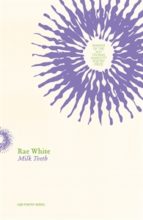 Milk Teeth
Milk Teeth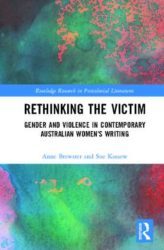 Rethinking the Victim: Gender and Violence in Contemporary Australian Women’s Writing
Rethinking the Victim: Gender and Violence in Contemporary Australian Women’s Writing


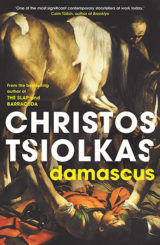 Damascus
Damascus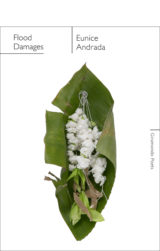 Flood Damages
Flood Damages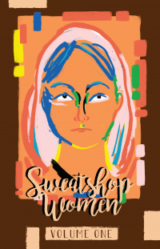 Sweatshop Women: Volume One
Sweatshop Women: Volume One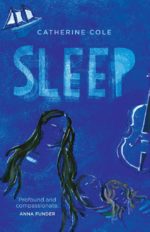 Sleep
Sleep Beth Spencer is the winner of the 2018 Carmel Bird Digital Literary Award for The Age of Fibs (fiction). Other books include the verse memoir Vagabondage (UWAP), and How to Conceive of a Girl (Vintage/Random House) which was runner up for the Steele Rudd Award. She writes across genres and forms, her ABC-radio pieces have been collected on the double CD Body of Words, and she is also a contributor to the podcast Climactic. She lives and writes on Darkinjung land, and has a website at www.bethspencer.com
Beth Spencer is the winner of the 2018 Carmel Bird Digital Literary Award for The Age of Fibs (fiction). Other books include the verse memoir Vagabondage (UWAP), and How to Conceive of a Girl (Vintage/Random House) which was runner up for the Steele Rudd Award. She writes across genres and forms, her ABC-radio pieces have been collected on the double CD Body of Words, and she is also a contributor to the podcast Climactic. She lives and writes on Darkinjung land, and has a website at www.bethspencer.com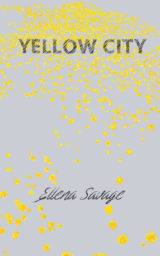 Yellow City
Yellow City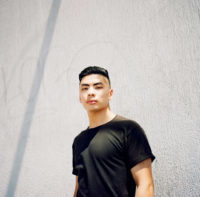 Stephen Pham is a Vietnamese-Australian writer from Cabramatta. He is an original member of SWEATSHOP Writers’ Collective. His essays and fiction have appeared in Sydney Review of Books, Overland, Meanjin, and Griffith Review. In 2018 Stephen received the NSW WRiters’ Fellowship from Create NSW to commence work on his debut manuscript ‘Vietnamatta’, to be published by Brow Books.
Stephen Pham is a Vietnamese-Australian writer from Cabramatta. He is an original member of SWEATSHOP Writers’ Collective. His essays and fiction have appeared in Sydney Review of Books, Overland, Meanjin, and Griffith Review. In 2018 Stephen received the NSW WRiters’ Fellowship from Create NSW to commence work on his debut manuscript ‘Vietnamatta’, to be published by Brow Books.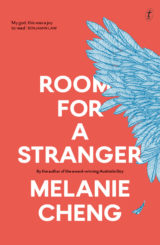 Room for a Stranger
Room for a Stranger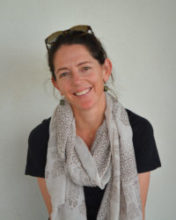 Nadine Schofield is an emerging writer living in Wollongong. She is a high school English teacher helping young women find the magic of words and the power of their own story. Nadine is completing a Master of Writing at Swinburne University.
Nadine Schofield is an emerging writer living in Wollongong. She is a high school English teacher helping young women find the magic of words and the power of their own story. Nadine is completing a Master of Writing at Swinburne University.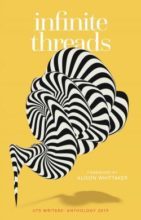 Infinite Threads
Infinite Threads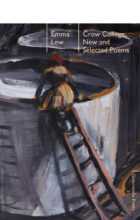 Crow College: New and Selected Poems
Crow College: New and Selected Poems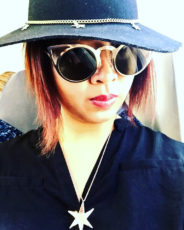 JZ Ting is an Asian-Australian geek, lawyer, and writer. She has lived on four continents but stays for Sydney’s beaches where she pretends to be a mermaid. Her fiction has appeared in Pencilled In literary magazine and been performed at Subbed In events, and she tweets online @ting_jz.
JZ Ting is an Asian-Australian geek, lawyer, and writer. She has lived on four continents but stays for Sydney’s beaches where she pretends to be a mermaid. Her fiction has appeared in Pencilled In literary magazine and been performed at Subbed In events, and she tweets online @ting_jz. Jordon Conway is an Irish/Australian writer who lives on the east coast of Tasmania. He is a professional landscaper with a background in fabrication, construction and waste management. He has a BFA from the University of Tasmania. His stories draw from his experiences growing up in suburban Brisbane and concern the conditions of working-class life in Australia.
Jordon Conway is an Irish/Australian writer who lives on the east coast of Tasmania. He is a professional landscaper with a background in fabrication, construction and waste management. He has a BFA from the University of Tasmania. His stories draw from his experiences growing up in suburban Brisbane and concern the conditions of working-class life in Australia. Maryam Azam is a Pakistani-Australian writer and teacher who lives and works in Western Sydney. She graduated with Honours in Creative Writing from Western Sydney University and holds a diploma in the Islamic Sciences. She is a recipient of the WestWords Emerging Writers’ Fellowship and has presented at the Sydney Writers’ Festival and the Ubud Writers and Readers Festival. She is a member of Sweatshop: Western Sydney Literacy Movement. Her debut poetry collection The Hijab Files (Giramondo, 2018) was shortlisted for the Anne Elder Award and the Mary Gilmore Award.
Maryam Azam is a Pakistani-Australian writer and teacher who lives and works in Western Sydney. She graduated with Honours in Creative Writing from Western Sydney University and holds a diploma in the Islamic Sciences. She is a recipient of the WestWords Emerging Writers’ Fellowship and has presented at the Sydney Writers’ Festival and the Ubud Writers and Readers Festival. She is a member of Sweatshop: Western Sydney Literacy Movement. Her debut poetry collection The Hijab Files (Giramondo, 2018) was shortlisted for the Anne Elder Award and the Mary Gilmore Award.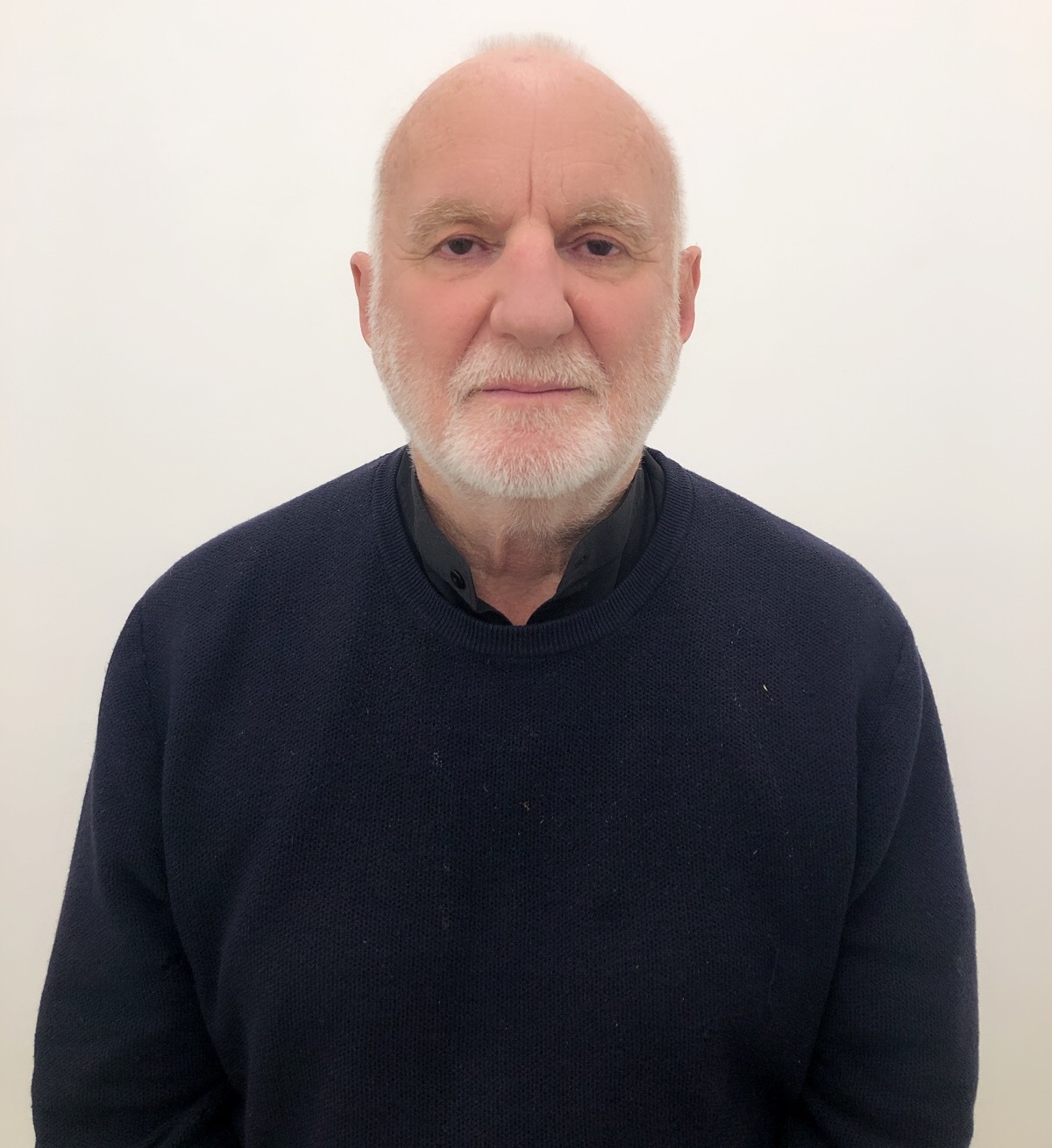 Simeon Kronenberg has published poetry, reviews, interviews and essays in Australian poetry journals and anthologies, including Best Australian Poems, 2017. In 2014 he won the Second Bite Poetry Prize and in 2015 was short-listed for the Newcastle Poetry Prize. Distance, his first poetry collection was published in 2018 by Pitt Street Poetry.
Simeon Kronenberg has published poetry, reviews, interviews and essays in Australian poetry journals and anthologies, including Best Australian Poems, 2017. In 2014 he won the Second Bite Poetry Prize and in 2015 was short-listed for the Newcastle Poetry Prize. Distance, his first poetry collection was published in 2018 by Pitt Street Poetry. Dominic Carew is a lawyer and writer from Sydney. His short stories have won or been shortlisted for several awards, including the Commonwealth Short Story Prize. His first collection of short fiction, No Neat Endings, will be released through MidnightSun in February 2020.
Dominic Carew is a lawyer and writer from Sydney. His short stories have won or been shortlisted for several awards, including the Commonwealth Short Story Prize. His first collection of short fiction, No Neat Endings, will be released through MidnightSun in February 2020.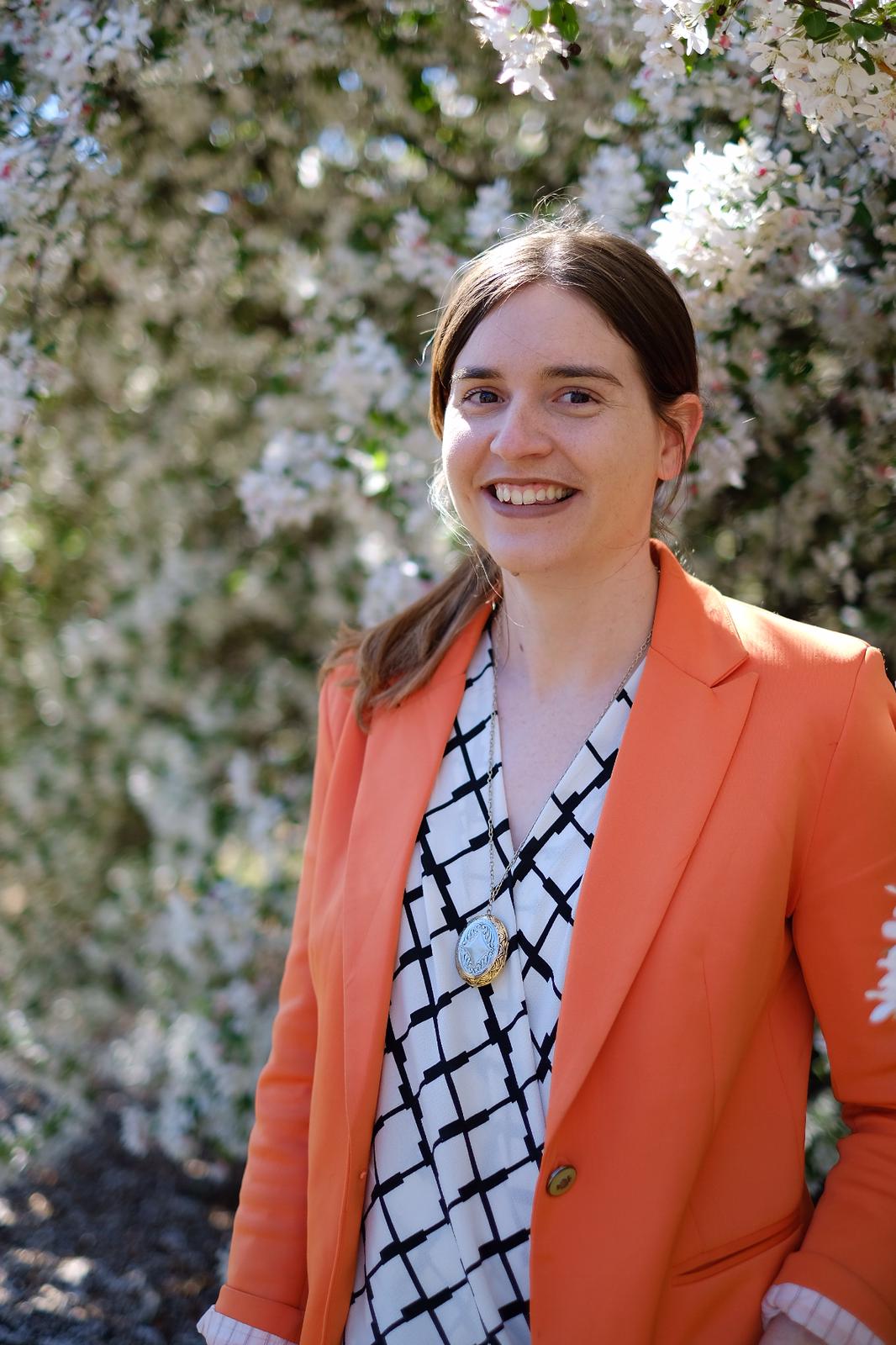 Maree Spratt is an educator by day, writer by night, and reader at all hours. In 2016 she was shortlisted for Seizure‘s Viva La Novella V, and has since expanded that piece into a novel. In 2018 she completed the Hardcopy Professional Development Program for Australian Writers. She writes to celebrate people.
Maree Spratt is an educator by day, writer by night, and reader at all hours. In 2016 she was shortlisted for Seizure‘s Viva La Novella V, and has since expanded that piece into a novel. In 2018 she completed the Hardcopy Professional Development Program for Australian Writers. She writes to celebrate people.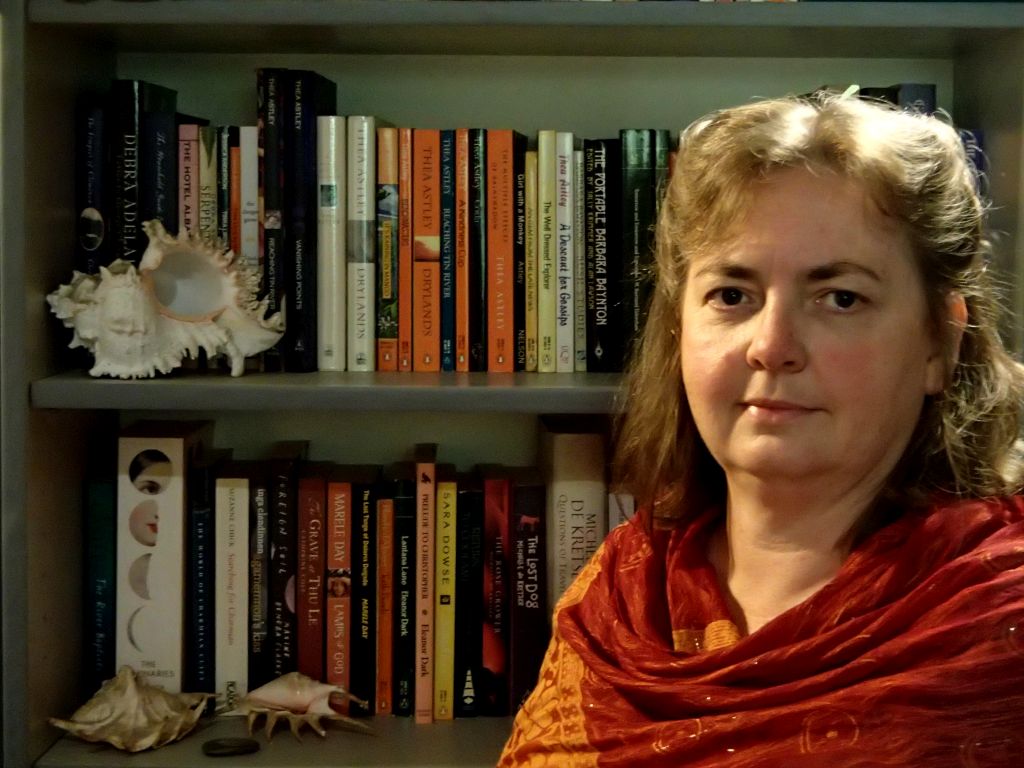 Jane Downing has had poetry and prose published around Australia and overseas, including in Griffith Review, The Big Issue, Southerly, Island, Overland, Westerly, Canberra Times, Cordite, and Best Australian Poems (2004 & 2015). A collection of her poetry, ‘When Figs Fly,’ was published by Close-Up Books in 2019. She can be found at janedowning.wordpress.com
Jane Downing has had poetry and prose published around Australia and overseas, including in Griffith Review, The Big Issue, Southerly, Island, Overland, Westerly, Canberra Times, Cordite, and Best Australian Poems (2004 & 2015). A collection of her poetry, ‘When Figs Fly,’ was published by Close-Up Books in 2019. She can be found at janedowning.wordpress.com Caitlin Doyle-Markwick is an activist, writer and performer from Sydney, by way of Newcastle. Her writing has appeared in publications like Overland, Antipodes and Otoliths. Working with her theatre collective BigMuscles SadHeart, she wrote and produced her first play, JobReady, a surreal, black comedy about the welfare system, in 2017. In 2019 she was a resident playwright at the Old 505 Theatre, where her latest play, As She Lay, will premier in 2020. Caitlin is a member of Solidarity and the Refugee Action Coalition.
Caitlin Doyle-Markwick is an activist, writer and performer from Sydney, by way of Newcastle. Her writing has appeared in publications like Overland, Antipodes and Otoliths. Working with her theatre collective BigMuscles SadHeart, she wrote and produced her first play, JobReady, a surreal, black comedy about the welfare system, in 2017. In 2019 she was a resident playwright at the Old 505 Theatre, where her latest play, As She Lay, will premier in 2020. Caitlin is a member of Solidarity and the Refugee Action Coalition. Claire Albrecht is writing her PhD in Poetry at the University of Newcastle. Her poems appear in Cordite Poetry Review, Overland Literary Journal, Plumwood Mountain, The Suburban Review, the Australian Poetry Anthology and elsewhere, and she is the 2019 Emerging Writers Fellow at the State Library Victoria. Her manuscript sediment was shortlisted for the 2018 Subbed In chapbook prize, and the poem ‘mindfulness’ won the Secret Spaces prize. Her debut chapbook pinky swear launched in 2018. Claire runs the monthly Cuplet Poetry Night in Newcastle.
Claire Albrecht is writing her PhD in Poetry at the University of Newcastle. Her poems appear in Cordite Poetry Review, Overland Literary Journal, Plumwood Mountain, The Suburban Review, the Australian Poetry Anthology and elsewhere, and she is the 2019 Emerging Writers Fellow at the State Library Victoria. Her manuscript sediment was shortlisted for the 2018 Subbed In chapbook prize, and the poem ‘mindfulness’ won the Secret Spaces prize. Her debut chapbook pinky swear launched in 2018. Claire runs the monthly Cuplet Poetry Night in Newcastle. Sun Music
Sun Music Sarah Attfield is a poet from a working-class background. Her writing focuses on the lived experiences of working-class people (both in London, where she grew up and in Australia where she lives). She teaches creative writing in the School of Communication at UTS. She is the co-editor of the Journal of Working-Class Studies.
Sarah Attfield is a poet from a working-class background. Her writing focuses on the lived experiences of working-class people (both in London, where she grew up and in Australia where she lives). She teaches creative writing in the School of Communication at UTS. She is the co-editor of the Journal of Working-Class Studies. Beth Spencer’s books include Vagabondage (UWAP), How to Conceive of a Girl (Random House) and most recently, Never Too Late (PressPress). She writes fiction, poetry, essays and writing for radio and performance. She has won a number of awards, including the Carmel Bird Digital Literary Award in 2018 for her short fiction collection The Age of Fibs, now a Spineless Wonders ebook. She lives on the Central Coast NSW.
Beth Spencer’s books include Vagabondage (UWAP), How to Conceive of a Girl (Random House) and most recently, Never Too Late (PressPress). She writes fiction, poetry, essays and writing for radio and performance. She has won a number of awards, including the Carmel Bird Digital Literary Award in 2018 for her short fiction collection The Age of Fibs, now a Spineless Wonders ebook. She lives on the Central Coast NSW. 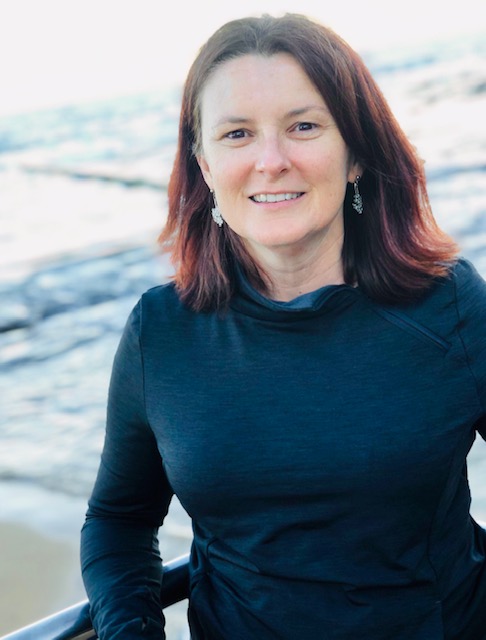 Erin Shiel has poems published in Meanjin, Cordite and Australian Love Poems. In 2018 she was shortlisted for the University of Canberra VC Poetry Prize. She is writing her first collection.
Erin Shiel has poems published in Meanjin, Cordite and Australian Love Poems. In 2018 she was shortlisted for the University of Canberra VC Poetry Prize. She is writing her first collection.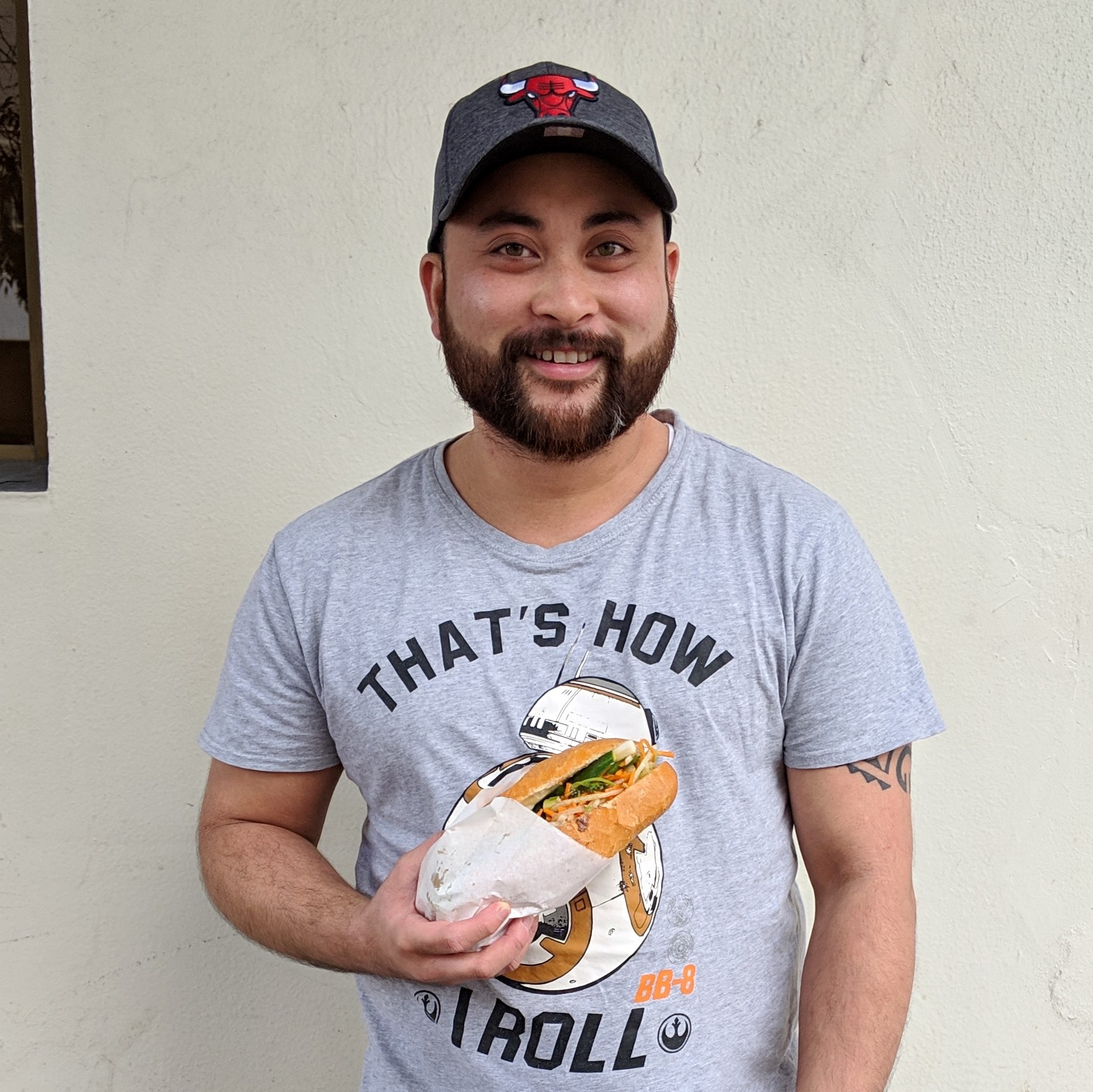 Joseph (known to some as Butch) is a Western Sydney based poet and visual media artist, born to Filipino immigrants. He enjoys doing laundry, long walks through Kmart, and late nights at Mr. Crackles in Darlinghurst. His practice explores the varied experiences of the Filipino diaspora in Australia. His works have been published in UNSWeetened Literary Journal, UTS Writers’ Anthology, and the Australian Poetry Anthology. Joseph’s favourite word is pie.
Joseph (known to some as Butch) is a Western Sydney based poet and visual media artist, born to Filipino immigrants. He enjoys doing laundry, long walks through Kmart, and late nights at Mr. Crackles in Darlinghurst. His practice explores the varied experiences of the Filipino diaspora in Australia. His works have been published in UNSWeetened Literary Journal, UTS Writers’ Anthology, and the Australian Poetry Anthology. Joseph’s favourite word is pie.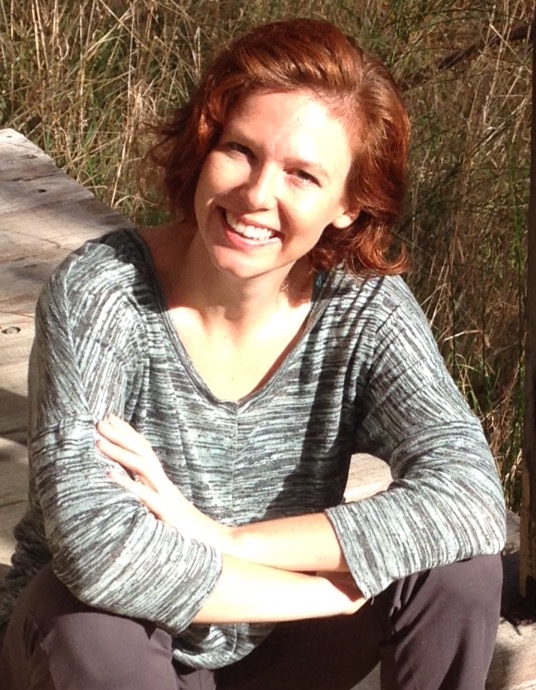 Bronwyn Lovell’s poetry has featured in Best Australian Poems, Meanjin, Southerly, Cordite, Antipodes, Rabbit, Verity La, and Strange Horizons. She has won the Arts Queensland Val Vallis Award and the Adrien Abbott Poetry Poetry Prize. She has been shortlisted for the Judith Wright, Fair Australia, Newcastle, Montreal, and Bridport Prizes.
Bronwyn Lovell’s poetry has featured in Best Australian Poems, Meanjin, Southerly, Cordite, Antipodes, Rabbit, Verity La, and Strange Horizons. She has won the Arts Queensland Val Vallis Award and the Adrien Abbott Poetry Poetry Prize. She has been shortlisted for the Judith Wright, Fair Australia, Newcastle, Montreal, and Bridport Prizes.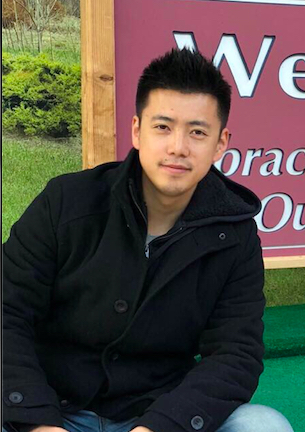 Aiden Heung is a native Chinese poet, born and raised on the edge of the Tibetan Plateau; he holds an MA in literature from Tongji University in Shanghai where he currently works and lives. His poems in English are published or forthcoming in many online and offline magazines, most notably Literary Shanghai, The Shanghai Literary Review, Cha: An Asian Literary Journal, New English Review, A Shanghai Poetry Zine, Aesthetic Apostle among many others. He is an avid reader. He can be found at
Aiden Heung is a native Chinese poet, born and raised on the edge of the Tibetan Plateau; he holds an MA in literature from Tongji University in Shanghai where he currently works and lives. His poems in English are published or forthcoming in many online and offline magazines, most notably Literary Shanghai, The Shanghai Literary Review, Cha: An Asian Literary Journal, New English Review, A Shanghai Poetry Zine, Aesthetic Apostle among many others. He is an avid reader. He can be found at 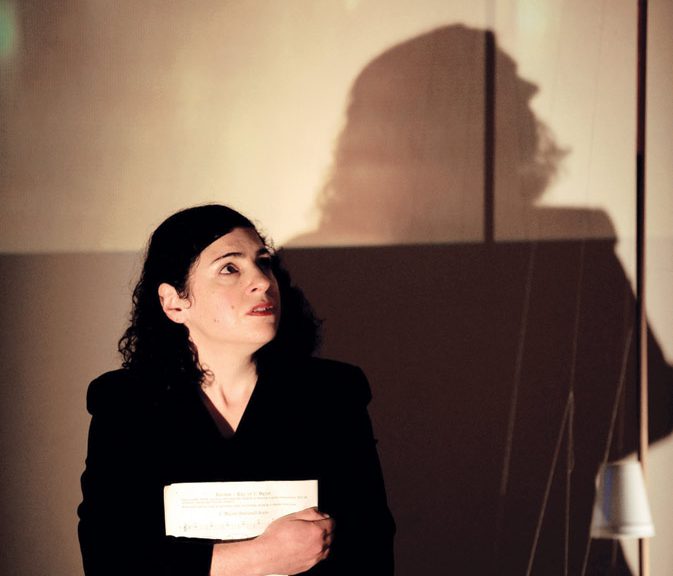 Angela Costi has four poetry collections: Dinted Halos (Hit&Miss Publications, 2003), Prayers for the Wicked (Floodtide Audio and Text, 2005), Honey and Salt (Five Islands Press, 2007) and Lost in Mid-Verse (Owl Publishing, 2014). Her full-length play, Shimmer, has been remounted at several South Australian secondary colleges, 2016-17.
Angela Costi has four poetry collections: Dinted Halos (Hit&Miss Publications, 2003), Prayers for the Wicked (Floodtide Audio and Text, 2005), Honey and Salt (Five Islands Press, 2007) and Lost in Mid-Verse (Owl Publishing, 2014). Her full-length play, Shimmer, has been remounted at several South Australian secondary colleges, 2016-17. Carolyn Gerrish is a Sydney poet. She has published five collections of poetry. The most recent The View from the Moon (Island Press, 2011). She enjoys performing her work and is currently working on her sixth collection.
Carolyn Gerrish is a Sydney poet. She has published five collections of poetry. The most recent The View from the Moon (Island Press, 2011). She enjoys performing her work and is currently working on her sixth collection.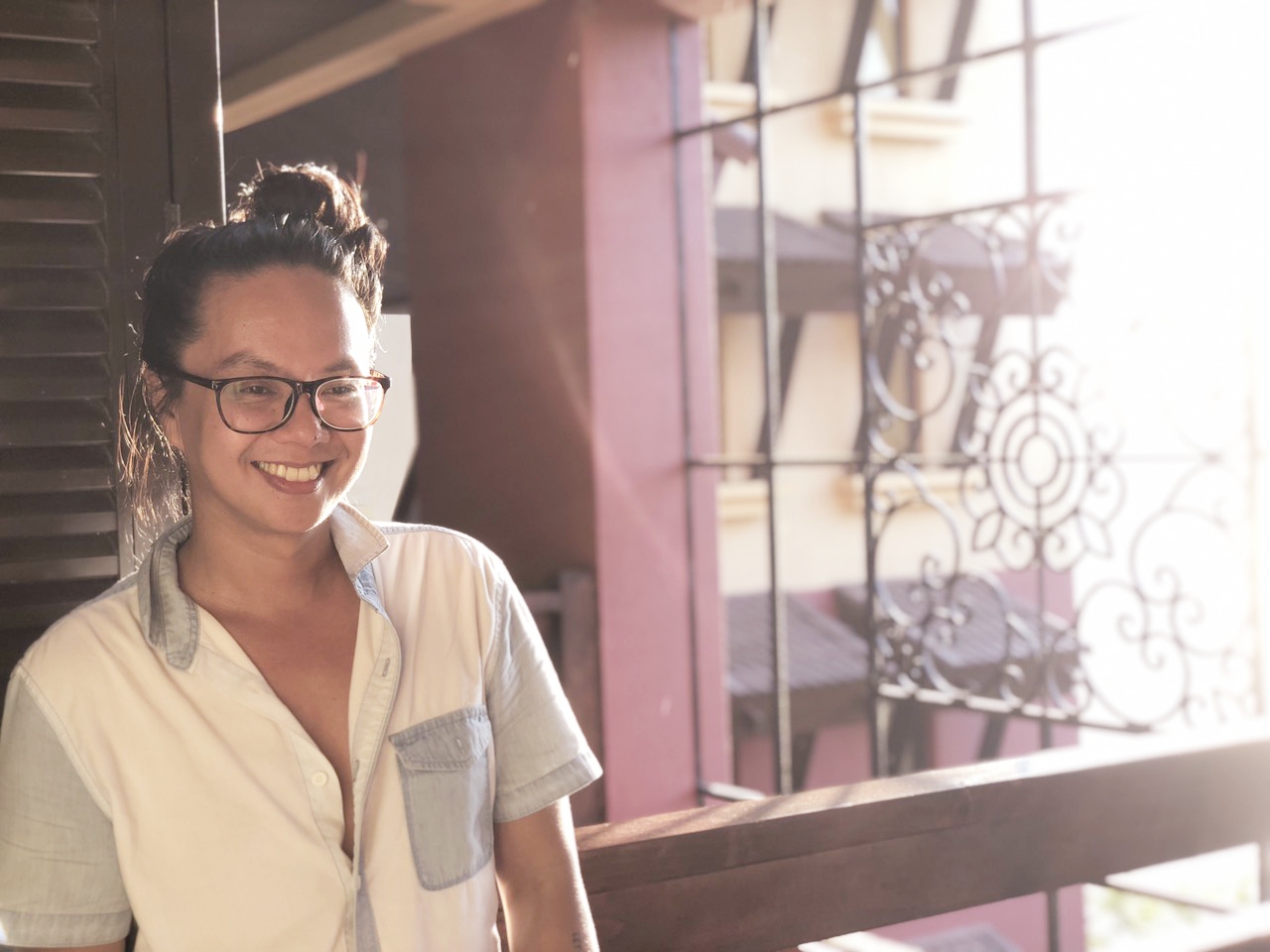 Mark Anthony Cayanan is from the Philippines. They obtained an MFA from the University of Wisconsin in Madison and are a PhD candidate at the University of Adelaide. Among their publications are the poetry books Narcissus (Ateneo de Manila UP, 2011) and Except you enthrall me (U of the Philippines P, 2013). Recent work has appeared or is forthcoming in Foglifter, The Spectacle, Dreginald, NightBlock, Crab Orchard Review, Cordite, and Lana Turner. A recipient of fellowships to Civitella Ranieri and Villa Sarkia, they teach literature and creative
Mark Anthony Cayanan is from the Philippines. They obtained an MFA from the University of Wisconsin in Madison and are a PhD candidate at the University of Adelaide. Among their publications are the poetry books Narcissus (Ateneo de Manila UP, 2011) and Except you enthrall me (U of the Philippines P, 2013). Recent work has appeared or is forthcoming in Foglifter, The Spectacle, Dreginald, NightBlock, Crab Orchard Review, Cordite, and Lana Turner. A recipient of fellowships to Civitella Ranieri and Villa Sarkia, they teach literature and creative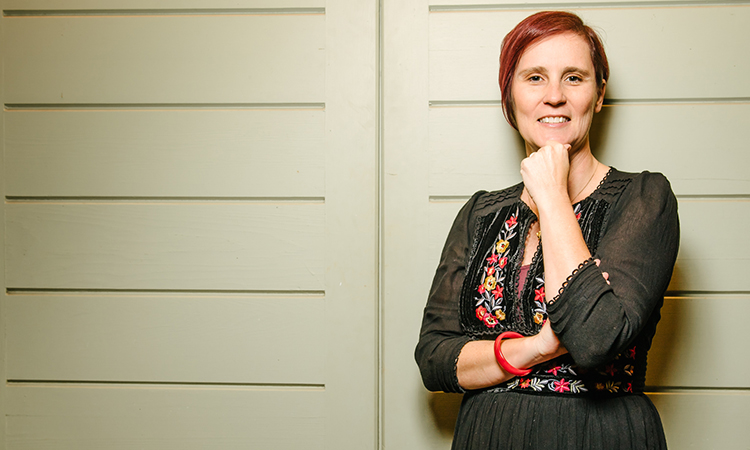 Natalie D-Napoleon is from Fremantle, Australia. Her writing has appeared in Southerly, Westerly, Meanjin, Griffith Review, and Australian Poetry Journal. In 2018 she won the Bruce Dawe National Poetry Prize. Her debut poetry collection First Blood will be released by Ginninderra press in 2019.
Natalie D-Napoleon is from Fremantle, Australia. Her writing has appeared in Southerly, Westerly, Meanjin, Griffith Review, and Australian Poetry Journal. In 2018 she won the Bruce Dawe National Poetry Prize. Her debut poetry collection First Blood will be released by Ginninderra press in 2019.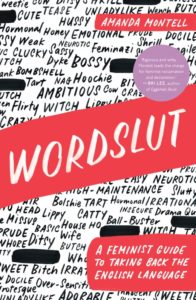 Wordslut: A Feminist Guide to Taking Back the English Language
Wordslut: A Feminist Guide to Taking Back the English Language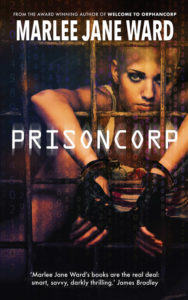 Prisoncorp
Prisoncorp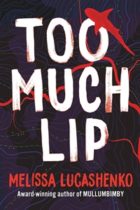 Too Much Lip
Too Much Lip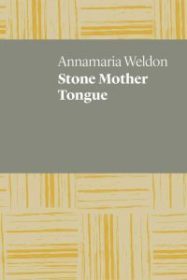 Stone Mother Tongue
Stone Mother Tongue out of emptied cups
out of emptied cups 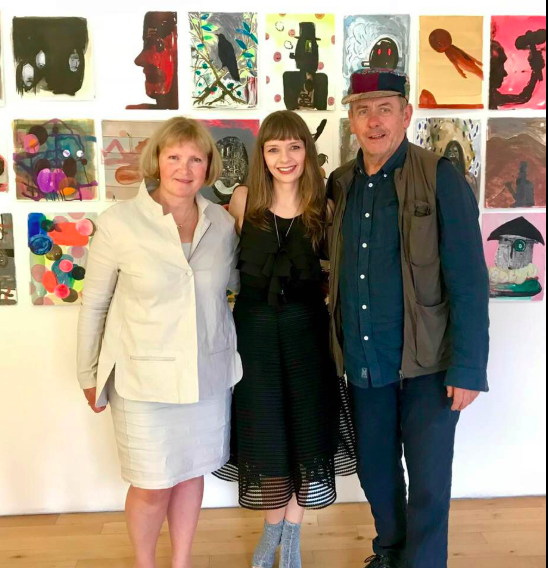
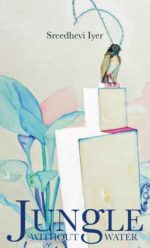 Jungle Without Water and Other Stories
Jungle Without Water and Other Stories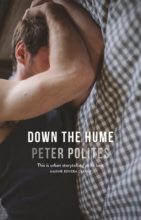
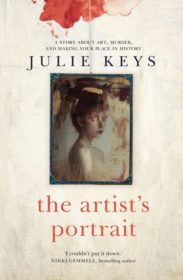 The Artist’s Portrait
The Artist’s Portrait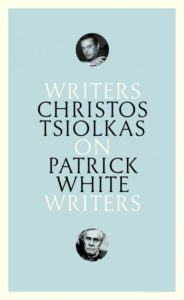 On Patrick White
On Patrick White 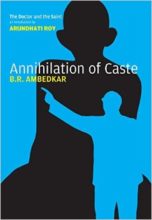 Annihilation of Caste
Annihilation of Caste